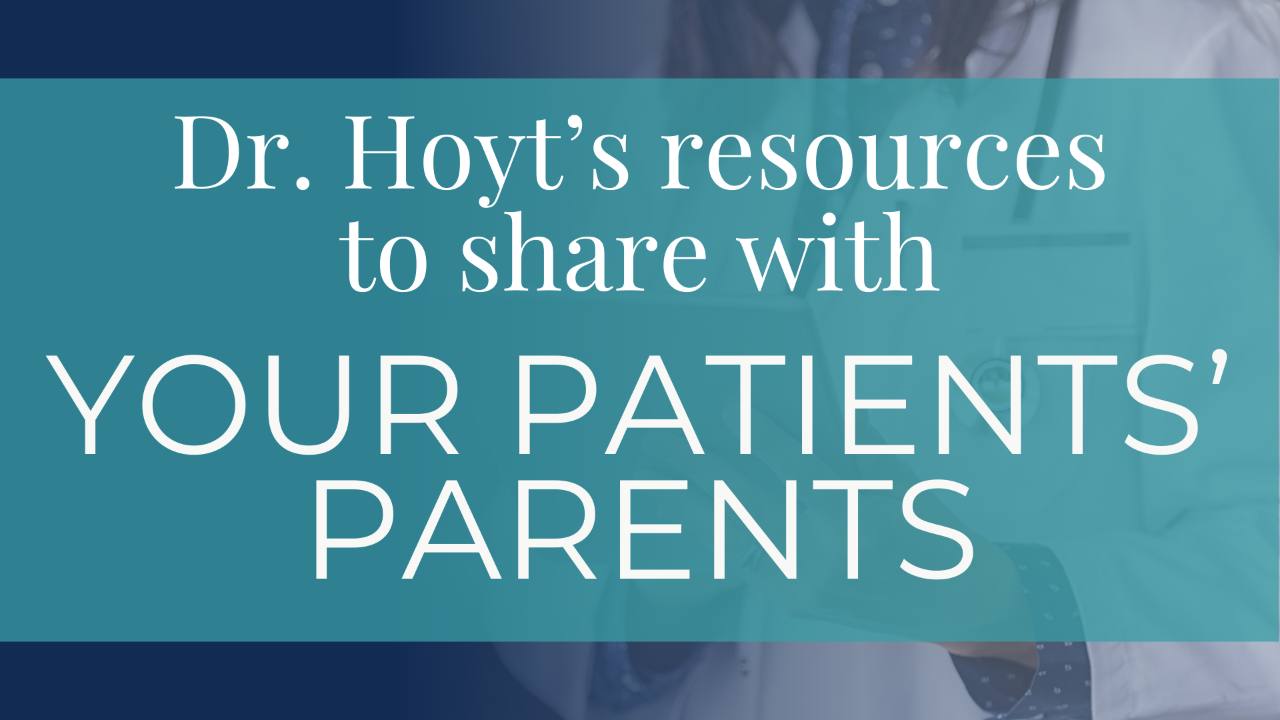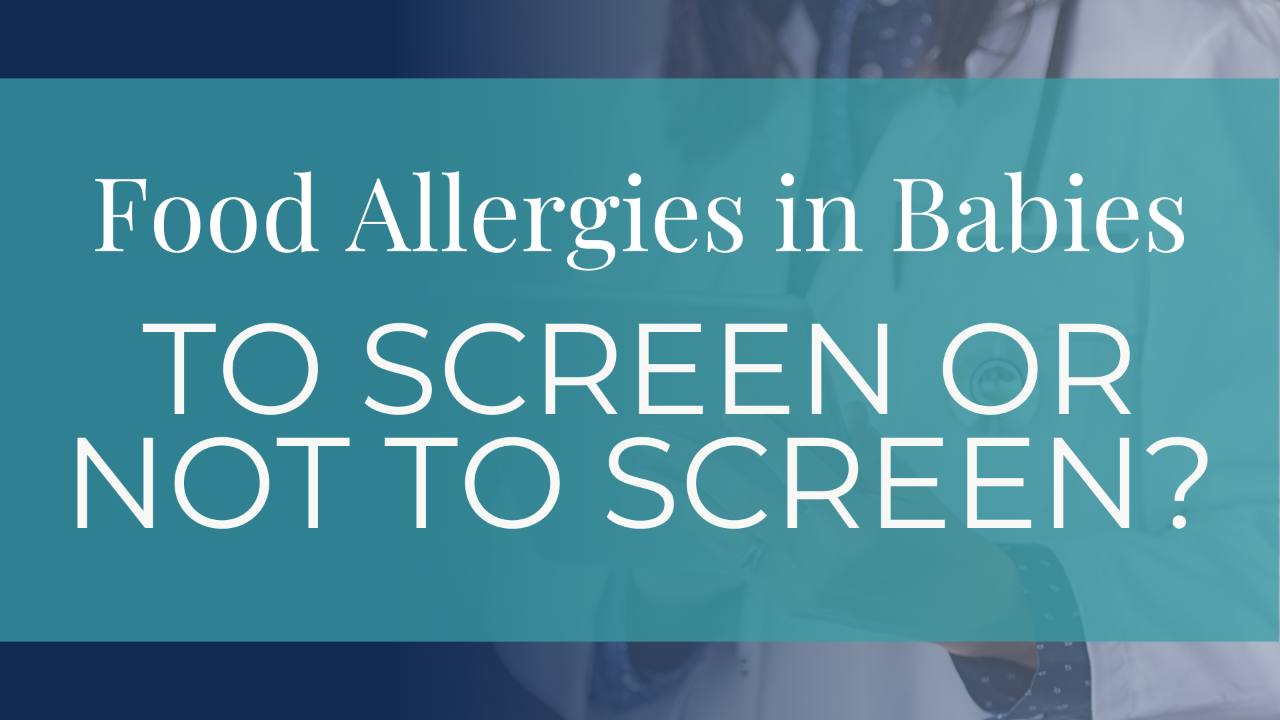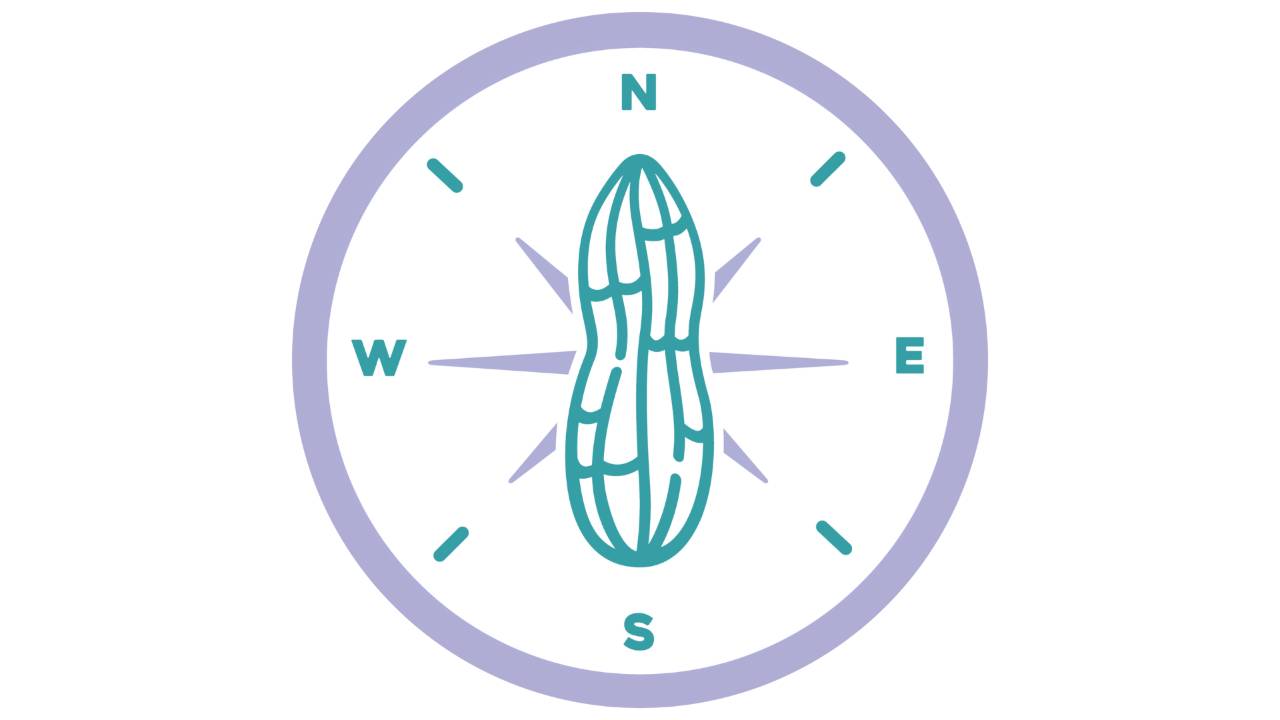"Should babies with eczema have food allergy testing?"
Food Allergy Friday Newsletter from Dr. Alice Hoyt
Hi there!
An interesting discussion popped into an allergist facebook group the other day and I immediately thought of you - my non-allergist pediatric colleague!
There's much ado about performing food allergy testing - specifically testing for IgE-mediated, i.e. anaphylactic, food allergies - on babies who have eczema, so I wanted to break down the top three myths regarding this issue.
And click the button below to access a great article entitled "The Evolution of IgE-Based Allergy Testing in Atopic Dermatitis: Where Do We Stand?" It's from the Journal of Allergy and Clinical Immunology: In Practice and was just published.
3 Myths about Eczema and Food Allergies
1. "Foods cause eczema." MYTH
Babies who have eczema are at risk of developing food allergies, but foods don't actually cause eczema. In many cases, a child may have eczema because of a genetic predisposition, such as a filagrin mutation. But foods themselves do not cause the eczema.
That being said, can some foods sometimes flare some babies' eczema? Yes. This is called "food-induced flaring of atopic dermatitis." Does this mean the food should be strictly avoided indefinitely? Typically no. Avoidance of foods, especially commonly allergenic foods, deprives the child's immune system of the exposure needed to grow tolerance to the food. In many babies with this condition, allergists prefer to be very proactive with skincare, such as having lots of focus on keeping the skin moisturized while also doing some anti-inflammation approach, such as topical steroids and bleach baths; however, if the food is avoided, it’s typically only for a few days as to not set the child up to develop an anaphylaxis reaction to the allergen.
2. "A positive food allergy test means a child with eczema is allergic to that food." POSSIBLE MYTH
Whether the food allergy testing being performed is skin prick testing or serum IgE testing, the test itself is determining whether or not the patient has that specific IgE and, with serum testing, how much is present in the blood. People can produce IgE to foods yet, when they eat those foods, they tolerate the food without reacting. This describes someone who is "sensitized" but not "allergic" (i.e. they have positive testing but don't react to the food).
Many babies have positive skin and IgE tests but tolerate the food. This underscores the importance of only ordering tests when there’s a good reason to do so and a good next step, such as a prompt referral to an allergist to risk-stratify the patient and consider an ingestion challenge, especially if the child has never eaten the food. Eczema is not a time to order a “food allergy panel” because many “false-positives” can arise. If you are concerned about when to order a food allergy test, check with your local friendly allergist.
This takes me to Myth #3…
3. "Food allergy testing should be performed on babies who have eczema before any foods are introduced." MYTH
This one can be tricky because babies with egg allergies or severe eczema are at risk of peanut allergies (as determined prior to the LEAP study, which enrolled babies at risk of peanut allergy to determine whether early incorporation of peanut into the diet prevented peanut allergy better than peanut-avoidance - SPOILER: early intro is the way to prevent peanut allergy). When the NIAID updated its food allergy recommendations in 2017, it recommended peanut allergy testing in babies at high risk of peanut allergy.
But only peanut. There are not good data to support pan-screening babies for IgE to all foods prior to feeding them.
Also, in 2021, the North American allergy societies collaborated on a lovely paper that recommends to "Introduce peanut-containing products to all infants, irrespective of their relative risk of developing peanut allergy, starting around 6 months of life, though not before 4 months of life."
Also, other countries do not necessarily recommend testing for peanut allergy prior to introduction. Overall, in the US and abroad, many allergists recommend early introduction (around 4 months of age) of developmentally-appropriate peanut-containing food without any testing. This is because it’s unlikely for a reaction to occur at that age, and it is much more likely that the baby will tolerate the food. On the off chance there is a reaction in this young age, it’s often limited to skin symptoms. While that should not diminish the trauma a reaction can cause a family, it should reassure you that early introduction can be done safely. More on that in this course.
In Summary
Allergy testing should only be performed when it will impact the plan. In most cases, babies can and should proceed with trying commonly allergenic foods without allergy testing, even babies with eczema. A purist who follows NIAID would test a baby with severe eczema for peanut allergy before introduction of peanut, but many allergists in the US and across the globe are recommending to proceed with early introduction without testing. If you are even in doubt of next steps, touch base with your local allergist as there absolutely can be nuance to this that allergists are trained to identify and manage - you are not alone in this!
Questions about eczema and food allergies?
Reach out!
Dr. Alice Hoyt
'Food Allergy Friday' is curated and written by Dr. Alice Hoyt. Dr. Hoyt is board-certified in allergy & immunology, internal medicine, and pediatrics. Her clinical expertise is in food allergies, and she serves patients with her team at the Hoyt Institute of Food Allergy.
Share this newsletter! Simply forward it to a colleague. 👍 And they can visit foodallergypedshub.hoytallergy.com.







